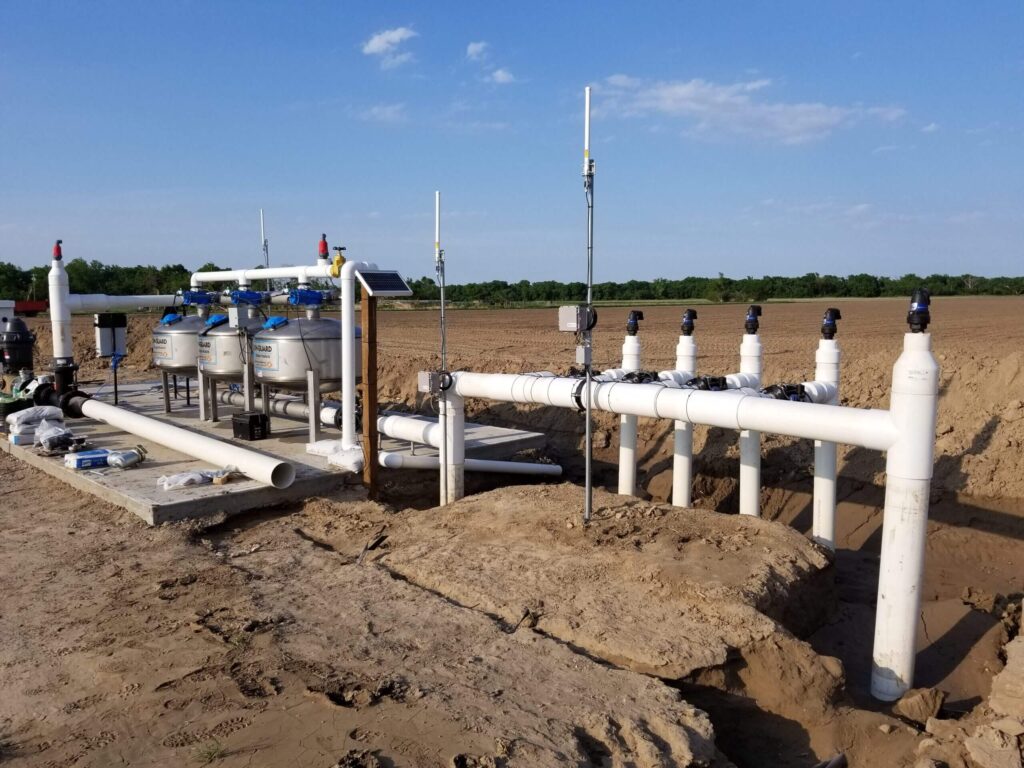Water Wisdom: A Comprehensive Guide to Agricultural Water Management
Water is essential for life and crucial for agriculture. As the global population continues to rise, so does the demand for food production. However, with limited resources such as water, it has become increasingly important for agricultural industries to find sustainable ways to manage this precious resource. In today’s world where climate change and water scarcity are pressing issues, effective management of agricultural water is key in ensuring food security and sustainability. This comprehensive guide will provide you with all the necessary information on agricultural water management practices that can help businesses and farmers make informed decisions towards sustainable farming practices. From understanding different irrigation systems to implementing efficient techniques, this blog post aims to empower individuals and organizations in the market with valuable insights on best practices for managing one of our planet’s most valuable resources – water.

Understanding Agricultural Water Management
Agricultural water management, a vital practice in farming, involves the precise application of controlled amounts of water to plants at specific intervals. This careful approach ensures that crops receive an optimal water supply, enabling them to grow effectively and achieve their maximum yield potential. It encompasses various aspects such as sourcing water, determining the most efficient distribution methods, and considering the timing and rate of irrigation.
The benefits of effective agricultural water management are manifold and extend beyond crop productivity. One crucial advantage is its contribution to water conservation, a pressing concern in the face of climate change and population growth. By optimizing water usage, this practice helps conserve water resources, which are becoming increasingly scarce. Additionally, implementing proper management practices can help mitigate the risk of crop diseases and pest infestations that are often associated with over-irrigation.
Furthermore, agricultural water management plays a pivotal role in maintaining soil structure and nutrient balance. By providing plants with the right amount of water at the right time, it promotes the overall health of the agricultural ecosystem. This, in turn, leads to sustainable farming operations, ensuring long-term productivity and environmental stewardship.
In summary, effective agricultural water management is crucial for maximizing crop yields, conserving water resources, mitigating risks, and promoting sustainable farming practices. By implementing these practices, farmers can achieve optimal results while preserving the health of the agricultural ecosystem for future generations.
Types of Irrigation Systems
There are several types of irrigation systems available, each with its own unique advantages and drawbacks. Let’s take a closer look at them:
- Surface Irrigation: This is the most common form of irrigation, where water is applied to the soil surface and allowed to flow over the land to the areas where it is needed. It is typically used in flat, even landscapes and requires a significant amount of water. This method can be further classified into furrow, border, and basin irrigation, depending on how the water is distributed.
- Drip Irrigation: Also known as trickle irrigation, this system delivers water directly to the root zone of a plant. It is highly efficient as it minimizes evaporation and runoff. Drip irrigation involves the use of small tubes or emitters that release water slowly and precisely, providing a constant supply of moisture to the plants. This method is particularly beneficial for water conservation and is widely used in areas where water resources are limited.
- Sprinkler Irrigation: Similar to natural rainfall, water is distributed through a system of pipes and sprayed into the air. Sprinkler systems come in various types, including fixed spray, rotary, and impact sprinklers. This method is effective in uneven landscapes and for crops that cannot withstand waterlogging. It also provides cooling effects and can help in reducing dust and pests.
- Subsurface Irrigation: Under this method, water is applied directly to the root zone below the soil surface, reducing evaporation significantly. It involves the use of buried pipes or drip lines that deliver water directly to the plant roots. Subsurface irrigation is known for its water-saving benefits, as it minimizes losses due to evaporation and surface runoff. However, it is more expensive to install and requires a more precise knowledge of soil characteristics.
Choosing the right irrigation system depends on several factors, including the type of crop, soil characteristics, availability of water and energy, and the overall budget. It is important to consider these factors and understand the pros and cons of each system to make informed decisions for effective agricultural water management.

Factors to Consider in Agricultural Water Management
When considering agricultural water management, several key factors come into play.
- Type of Crop: Different crops require varying amounts of water and have diverse tolerance levels to water stress. Therefore, understanding the water requirements of each crop is crucial in determining the appropriate irrigation system and schedule.
- Soil Characteristics: The type of soil influences the rate of water infiltration and retention, directly impacting how much and how often to irrigate. For instance, sandy soils have high infiltration rates but low water retention, while clay soils hold water longer but have slower infiltration rates.
- Climate and Weather Conditions: The local climate and weather conditions, such as temperature, humidity, wind, and rainfall, significantly influence the evaporation rate and the crop’s water requirement.
- Water Quality: The quality of water is another essential aspect to consider. Poor quality water can affect crop growth and soil health. Factors like salinity, pH, and the presence of certain chemicals or pollutants can have detrimental effects on crops.
- Water Availability: The source and availability of water can limit the choice of irrigation system and schedule. Ensuring a sustainable water source is critical in agricultural water management.
- Cost and Labor: The cost of installing and maintaining an irrigation system, as well as the labor required, also plays a role in decision-making. Systems that require less manual intervention and maintenance may be more expensive upfront but could prove beneficial in the long term.
By considering these factors, farmers can make effective decisions in managing agricultural water, thereby optimizing their crop yield, conserving water, and contributing to sustainable farming practices.
Efficient Techniques for Agricultural Water Management
Understanding and employing efficient techniques for agricultural water management is crucial for the overall sustainability and productivity of farming operations. Here are some key practices:
- Scheduled Irrigation: Using knowledge about the crop’s water requirement, soil type, and weather conditions, farmers can schedule irrigation to avoid overwatering and underwatering. This not only helps in conserving water but also prevents crop diseases associated with waterlogging.
- Mulching: Applying a layer of organic or inorganic material on the surface of the soil helps to reduce evaporation, suppress weeds, and enhance soil health. Mulch acts as a barrier between the soil and the atmosphere, slowing the loss of water.
- Use of Water-Saving Technologies: Technologies like soil moisture sensors and automatic irrigation controllers can help manage irrigation more efficiently. Soil moisture sensors provide real-time data on soil moisture levels, enabling farmers to irrigate only when necessary.
- Crop Rotation: This involves growing different crops in the same area in sequential seasons. Crop rotation can help improve soil fertility and structure, leading to better water retention and less need for irrigation.
- Terracing: In hilly areas, terracing can be used to slow runoff and prevent soil erosion. It involves creating flat platforms on the slope, which are sustained by retaining walls.
- Rainwater Harvesting: Collecting and storing rainwater for later use is another technique to manage water efficiently. This not only provides a supplementary water source during dry periods but also reduces reliance on groundwater.
- Use of Drought-Resistant Varieties: Choosing to grow varieties of crops that are resistant to drought can help reduce the reliance on irrigation.

By implementing these techniques, farmers can optimize their water use, leading to more resilient and productive agricultural systems.
In conclusion, effective agricultural water management is crucial for sustainable farming and resource conservation. By considering various factors and employing efficient techniques, farmers can optimize their crop yield while conserving water resources. This not only benefits the environment but also helps in ensuring food security for present and future generations. So, it is essential to prioritize responsible water management practices in agriculture for a better tomorrow.
